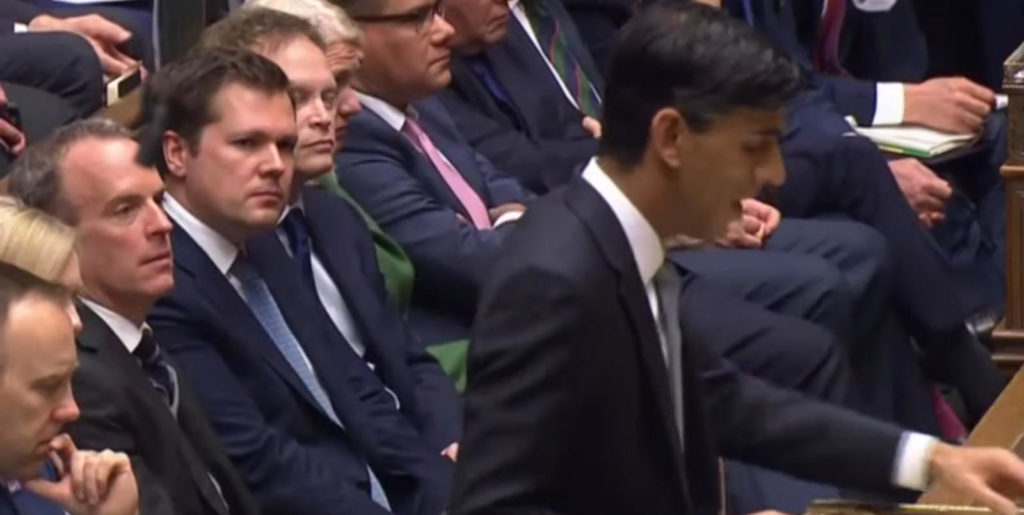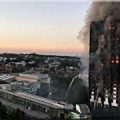
By Harry Scoffin
Hundreds of thousands of leaseholders in apartment blocks blighted by the cladding scandal rejoiced on Wednesday as Communities Secretary Robert Jenrick won financial backing for a decisive resolution to the cladding crisis.
Chancellor Rishi Sunak told the Commons:
“Two and a half years on, we’re still grappling with the tragic legacy of Grenfell.
“Last year, we allocated £600m to remove unsafe Aluminium Composite Material, or ACM, from high rise residential buildings. Today I go further. Expert advice is clear that new public funding must concentrate on removing unsafe materials from high rise residential buildings.
“So, today, I am creating a new Building Safety Fund worth £1 billion. That is what the independent experts have called for. That is what the [Housing, Communities and Local Government] Select Committee has called for. That is even what the Opposition have called for. That new fund will go beyond dealing with Aluminium Composite Material to make sure that all unsafe combustible cladding will be removed … from every private and social residential building above 18 metres high.”
The surprise intervention has been met with universal praise.
The Leasehold Knowledge Partnership as secretariat of the APPG on leasehold reform has organised all the Westminster meetings to address cladding, with successive ministers and numerous MPs.
These initiatives, organised by LKP chair Martin Boyd – who is also chair of a prime apartment block in Kingston, Surrey – greatly assisted numerous others campaigning on this issue, notably: Professor Susan Bright, of Oxford University; Ritu Saha, founder of the UK Cladding Action Group; the Manchester Cladiators group; and others in Birmingham and Leeds; and Grenfell United.
LKP hugely applauds the reporting team of Inside Housing magazine, which has campaigned on this issue for a year.
Speaking in the Commons immediately following the Budget, LKP patron and father of the house Sir Peter Bottomley sought to “pay tribute to former and present ministers for getting a grip of this issue.”
Sir Peter went on to suggest that the billion-pound building safety fund has a greater chance of being delivered effectively if government consults pro-consumer leaseholder groups on the policy details, saying:
“I hope they [ministers and their officials] will find a way of getting together with the campaigning charity, the Leasehold Knowledge Partnership, and with the National Leasehold Campaign.”
Sir Peter added that the new policy had accepted a reality that was uncomfortable for government and its advisory service LEASE which, he said, “did not immediately tell the government that private leaseholders in big blocks were completely exposed as the only tenants who were expected to pay for the waking watch and for the remediation of dangerous cladding”.
The MP for Worthing West was not the only politician from the ruling party to celebrate the news, with Kevin Hollingrake MP tweeting:
One of the most important measures in today’s #Budget2020 was the £1bn extra funding for removal of combustible cladding from high rise buildings. Many thanks to @RishiSunak and @RobertJenrick who quickly grasped the issue and acted accordingly @hmtreasury
— Kevin Hollinrake MP (@kevinhollinrake) March 11, 2020
Mr Hollingrake has been a staunch defender of cladding victims and, as an ex-member of the Communities Select Committee, argued against suggestions of low cost or zero-interest Treasury-backed loans for leaseholders.
In October, he asked the housing secretary to consider a “£200,000 flat, I might have a 95% mortgage on it. If I borrowed £20,000-£30,000, I would be under water in terms of negative equity. I would be borrowing more than 100% of the flat to be able to remediate that building.”
Leaseholders outraged as government weighs up loans rather than cash for buildings with dangerous cladding
Inside Housing, news, analysis, and comment about the social housing sector in the UK.
The Thirsk and Malton MP also repeatedly drew attention to the fact that, contrary to ministers’ exhortations, building owners could not be expected “to do the right thing” and pay for re-cladding bills because many third-party freeholders have a tiny financial stake in leasehold blocks, only exist to reap legally enforceable incomes (which in some cases amount to just a few thousand pounds in ground rent and sub-let fees), and have no legal obligation to pick up the tab anyway.
LKP chief executive Sebastian O’Kelly told The Times:
“This is an acknowledgement that we have a massive problem with cladding of all types and that government is going to have to fund making these buildings safe. Is the money enough? Certainly not, given that housing associations alone say that they need £10 billion to sort out cladding on their sites.”
Mr O’Kelly also questioned simply handing funds over to the speculators in residential freeholds – nominally the building owners – who have taken a punt on a building’s income streams.
“Cladding sites are worth zero; that means the freehold is valueless as well and needs to be removed from the speculator who acquired it. Only then can the money be safely gifted or loaned to the leaseholders who are affected.
“Otherwise this money just props up a failed property tenure, as well as the income streams of offshore private equity punters in residential freeholds.”
Meanwhile, a spokesperson for the UK Cladding Action Group said:
“We welcome and thank the Chancellor for factoring the cladding scandal into his Budget. The scandal has been a nightmare endured by over half a million British people for too long.
“This crisis was avoidable and has caused an insurmountable amount of stress and anguish for many people. The government always said the original ACM fund was created to quicken the pace of remediation works – but to date, only a handful of eligible buildings have been fully approved for funding … We can only hope the mistakes are not now replicated.”
Some stakeholders have suggested that the £1bn building safety fund does not go far enough, drawing attention to the caveat that only properties over 18m will qualify for the taxpayer funds.
“This is just the start. The fund is for buildings over 18m only, not yet for buildings under that. Hard work is needed to make sure buildings are prioritised, the funds get out quickly and work starts immediately. Every building needs a timeline and residents must be listened to and supported throughout the process,” said a Grenfell United spokesperson.
However, in a new twist, the presenter of the current affairs chat show BBC Politics Live Jo Coburn, who said her team “have been on the phone to the government and ministers all morning”, announced on air yesterday that MHCLG, the ministry of housing, is now inviting “any building owner of buildings below 18m to apply for the building safety fund as funding is determined on a case-by-case basis, so no guarantee but you are being urged – residents and owners of buildings below 18m – to go ahead and apply for that funding.”
Ms Coburn urged the representative from campaign group Manchester Cladiators to inform the programme if she gets “something more concrete from the government in response”.
The development was flagged on Twitter by Sue Bright, the professor of law at Oxford.
UPDATE: LKP has been contacted by MHCLG to confirm that the new fund will apply to blocks under 18 metres in height.
Another view from Labour’s shadow housing minister Sarah Jones, who has attended all LKP’s Westminster meetings on the issue:
This is a big moment after years of campaiging to make homes safe.
— Sarah Jones MP (@LabourSJ) March 11, 2020
Make no mistake, ministers had to be dragged into this – we’ve been calling for this since 2017.
Still big Qs, but alongside brave campaigners in blocks across the country we should celebrate this win. https://t.co/Fxpd74dpmU
Social landlords have been more cautious about the Budget announcement of a £1bn building safety fund, with the G15 group of housing associations saying that they need to be able “to continue to invest in building new homes”.
MHCLG told Inside Housing that government “expects social housing providers which are funding removal work to continue to do so without accessing the fund ‘so we can prioritise this funding on those who cannot afford the cost, creating a barrier to remediation and safety’.”
Housing associations came out yesterday to warn government that cladding costs and building safety repairs could jeopardise their supply of new homes:
Fire safety costs ‘could still hit development pipelines’ despite £1bn fund
Inside Housing, news, analysis, and comment about the social housing sector in the UK.
Last week, social landlords made a pre-emptive move ahead of the Budget, using National Housing Federation to publicise that they are already struggling to deal with costs of up to £10bn to rectify major building safety issues with their existing stock:
Social landlords ‘face £10bn bill to fix fire safety problems’
Social landlords have warned they are facing a bill of more than £10bn to fix fire safety problems after the Grenfell Tower disaster and that much-needed affordable housebuilding is in jeopardy unless the government funds a bailout. The cost is at least 25 times greater than the £400m budgeted for so far by ministers for housing associations to remove Grenfell-style cladding.





 Bob Marley lover faces forfeiture of Chelsea flat
Bob Marley lover faces forfeiture of Chelsea flat





















